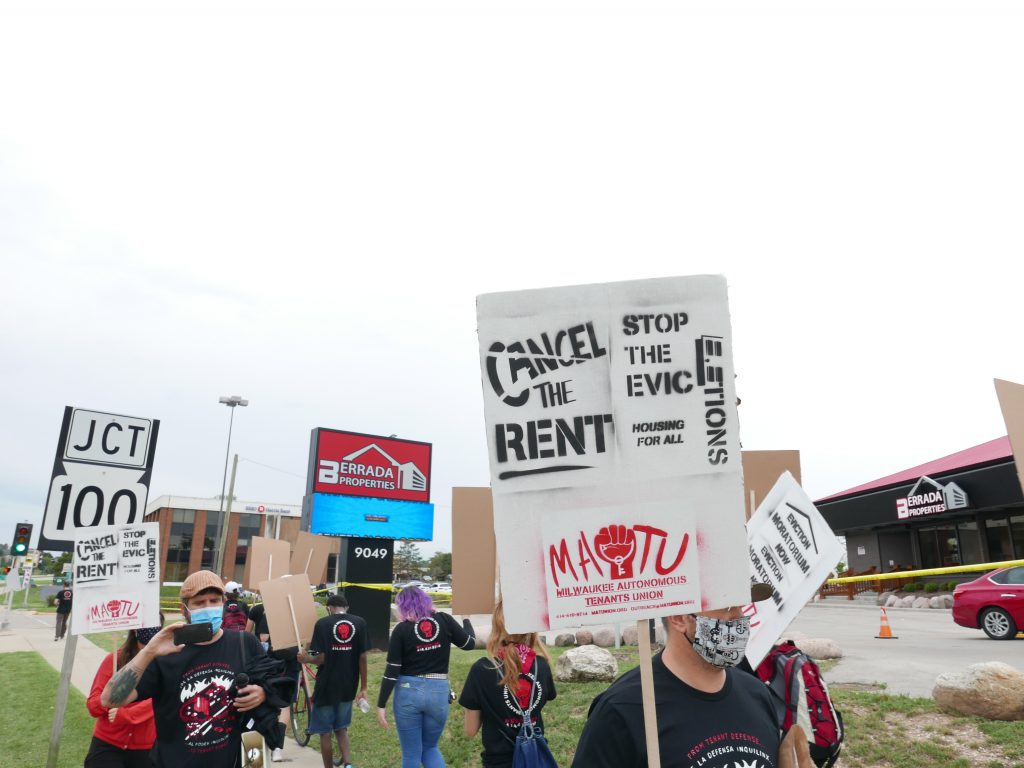Milwaukee County Prevents Over 1,700 Evictions
Using CARES Act funds, the county funded eviction prevention and rental assistance programs.
County Executive David Crowley’s decision to put $10 million of CARES Act funds into efforts that would maintain housing for residents during the pandemic has averted over 1,700 evictions, according to the Milwaukee County Housing Division.
In July, Crowley announced the allocation from the county’s $77 million CARES Act funds. And the single biggest allotment was to the county’s Housing Division to prevent evictions in Milwaukee County.
The funds Crowley allocated to the housing division were used to fund direct eviction prevention in the form of rent payments, rental assistance, and legal aid to those facing eviction proceedings.
The county then provided $6.5 million to Community Advocates to process applications for eviction prevention funding and make payments directly to landlords and $2.5 million to Hope House to provide rental assistance and also case management for families once their living situation has stabilized.
“A vast majority of individuals that are receiving these funds are falling into the extremely low-income levels,” said James Mathy, housing division administrator, told the county board’s Health and Human Needs Committee.
So far, the funds have been used to prevent approximately 1,730 evictions, Mathy said, 81% of which were for Black households.
Recently, Community Advocates has been spending approximately $400,000 a week on eviction prevention, Mathy said. The national eviction moratorium authorized by the Centers for Disease Control and Prevention ends at the end of 2020. “And we are all very concerned about what would happen at the first quarter of 2021,” Mathy said.
Along with the eviction prevention efforts. The county’s housing division has been working to get homeless individuals into housing during a time when shelter capacity is limited by COVID-19 mitigation efforts. Right now, the county has placed approximately 100 homeless individuals in hotels.
“Without this CARES Act funding with eviction prevention we would have seen a dramatic spike in homelessness,” Mathy said. “With frankly not a lot of places for individuals to go at the moment.”
If you think stories like this are important, become a member of Urban Milwaukee and help support real, independent journalism. Plus you get some cool added benefits.
More about the Coronavirus Pandemic
- Governors Tony Evers, JB Pritzker, Tim Walz, and Gretchen Whitmer Issue a Joint Statement Concerning Reports that Donald Trump Gave Russian Dictator Putin American COVID-19 Supplies - Gov. Tony Evers - Oct 11th, 2024
- MHD Release: Milwaukee Health Department Launches COVID-19 Wastewater Testing Dashboard - City of Milwaukee Health Department - Jan 23rd, 2024
- Milwaukee County Announces New Policies Related to COVID-19 Pandemic - County Executive David Crowley - May 9th, 2023
- DHS Details End of Emergency COVID-19 Response - Wisconsin Department of Health Services - Apr 26th, 2023
- Milwaukee Health Department Announces Upcoming Changes to COVID-19 Services - City of Milwaukee Health Department - Mar 17th, 2023
- Fitzgerald Applauds Passage of COVID-19 Origin Act - U.S. Rep. Scott Fitzgerald - Mar 10th, 2023
- DHS Expands Free COVID-19 Testing Program - Wisconsin Department of Health Services - Feb 10th, 2023
- MKE County: COVID-19 Hospitalizations Rising - Graham Kilmer - Jan 16th, 2023
- Not Enough Getting Bivalent Booster Shots, State Health Officials Warn - Gaby Vinick - Dec 26th, 2022
- Nearly All Wisconsinites Age 6 Months and Older Now Eligible for Updated COVID-19 Vaccine - Wisconsin Department of Health Services - Dec 15th, 2022
Read more about Coronavirus Pandemic here
Political Contributions Tracker
Displaying political contributions between people mentioned in this story. Learn more.






















